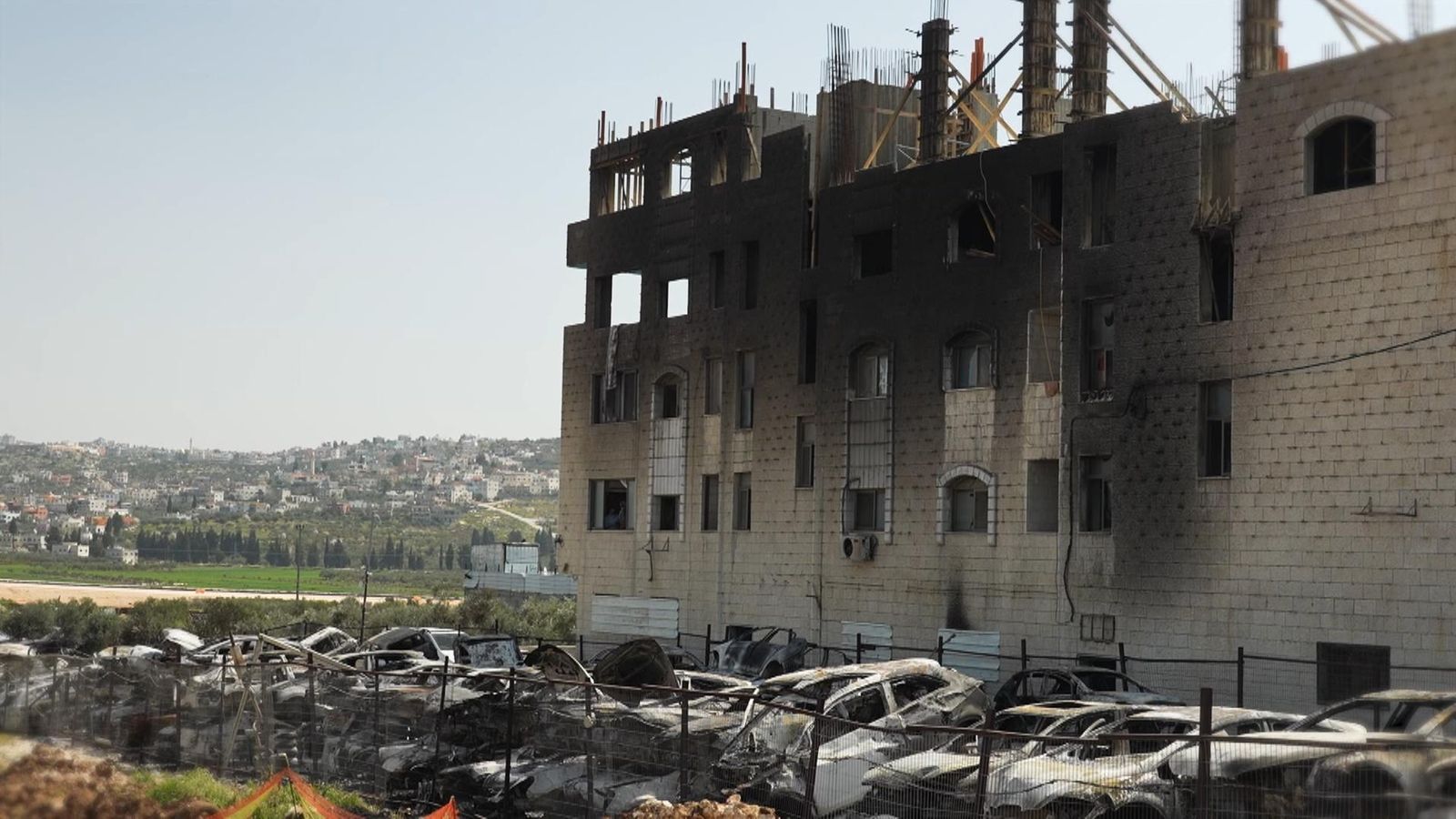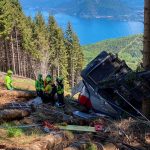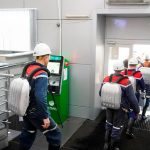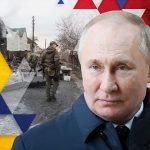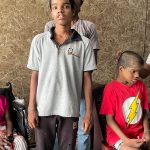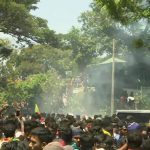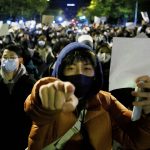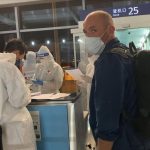I’ve been to Huwara many times, but never seen it like this. Driving in feels like you’re nearing the frontline of a war.
The streets, normally heaving with shoppers and cars parked bumper-to-bumper, are now quiet. The shops are all closed, metal shutters pulled down.
There are Israeli soldiers everywhere.
The IDF (Israeli Defence Forces) has put more units into the West Bank in recent days to calm the tension. As a tactic, it might work, but they’re not welcome here.
The town sits on a main road between the Palestinian cities of Ramallah and Nablus. It is surrounded by a number of Jewish settlements, and so it’s often the flashpoint for violence, but nothing like what happened on Sunday night.
Hundreds of settlers marched on the town to protest the killing of two young Jews earlier in the day.
They were shot dead in their car by a Palestinian gunman. He escaped and is still being hunted by the IDF.
Israel’s Benjamin Netanyahu criticises anti-government protesters in televised statement
Israeli minister Bezalel Smotrich says Palestinian town targeted by rioters should be ‘wiped out’
West Bank violence in Palestinian town described as ‘a pogrom’ by Israeli military commander
I counted 79 burnt wrecks of cars in a yard on the edge of the town. The owner, Sultan Farouq, lives beside the yard – black smoke marks cover the walls of his home.
“Look at these flash bangs and smoke grenades,” he tells me, pointing out the Hebrew writing on them.
“They were fired towards our house by the soldiers. Why? We had children inside, and we were the ones being attacked.”
CCTV footage shows masked settlers stacking wooden pallets in a doorway and setting them alight. They carry on for four minutes, the IDF apparently nearby, but no one stops them.
Nawal was alone inside. She is 75 years old. She tried to put the fire out by pouring water over the balcony, but tear gas was shot at her.
Because the fire cut the internet and electricity, her phone ran out of battery, and she couldn’t call for help. She was stuck inside before her son, Firaz, flew back from Dubai to get her out.
“She stayed here alone for 24 hours without anything, because no electricity, everything in the fridge was lost. She stayed alone,” he told me.
“We are going to the third intifada. This is the final intifada,” he predicts. This intifada maybe we stay here, or maybe Israel will stay here.”
The rampage has caused outrage across the world, but on Wednesday, one of the most senior Israeli government ministers – Bezalel Smotrich, the far-right finance minister – said Huwara should be “wiped out”.
Israel’s closest ally, the United States, didn’t mince its words.
“I want to be very clear about this. These comments were irresponsible. They were repugnant. They were disgusting,” said a State Department spokesman.
The attacks have also been criticised by many Israelis. A crowdfunding effort was started and has now raised more than £400,000.
“99% of them (the donors) are Jewish, because the Jewish people, the majority of them are moderate, and they don’t want racism, they don’t want nationalism, they don’t want hatred,” said Yaya Fink, who started the campaign.
“It’s maybe one of the most successful crowdfunding projects ever in Israel, and when we finish collecting the money, we’re going to transfer it to the small businesses and to the innocent families that were attacked in Huwara three days ago.”
